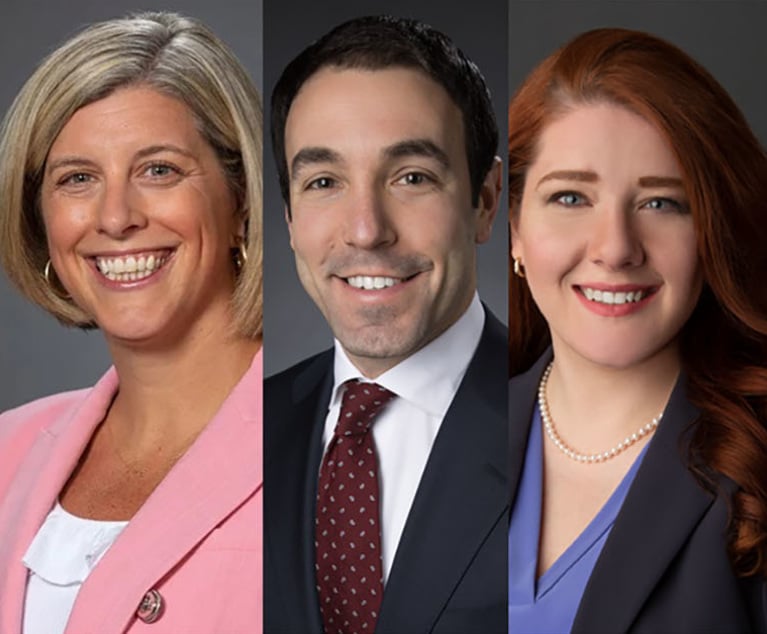In Robinson v. Norling (No. 20-3302), a civil rights plaintiff had forfeited the argument that his claims, which had been dismissed at the Rule 12 stage as untimely, were in fact timely because the last day to file fell on a federal holiday and the complaint was filed the following day. The Eighth Circuit exercised its discretion to excuse the forfeiture, resurrecting all but one of the plaintiff’s §1983 claims.
The plaintiff, Trenton Renell Robinson, alleges that he was the victim of a bizarre telephone scam that eventually led to Robinson’s arrest and physical injury by police officers of the city of Bloomington, Minnesota. On the morning of Nov. 11, 2013, Robinson received a call on his cell phone from an unknown caller who claimed to be holding Robinson’s mother-in-law at gunpoint. The caller demanded $1,600 for damage Robinson’s mother-in-law had done to the caller’s brother’s car. The caller threatened to harm Robinson’s mother-in-law if Robinson were to end the call. The call was a hoax; several Bloomington residents had called law enforcement on the same day to report similar calls.
Robinson believed the caller’s threats and, not having the demanded amount of money, asked his neighbor for assistance. The neighbor agreed to lend Robinson $1,000. The two men went together to a bank branch located inside a local grocery store. Robinson, still on the phone with the “kidnapper,” passed a note to the bank teller while the teller was speaking with Robinson’s neighbor. The note asked the teller to call the police. The bank manager called police. He described the two men and stated that Robinson had handed the note to the teller and was talking on his cell phone.
The first Bloomington police officer to arrive saw Robinson standing in a grocery aisle, holding a cell phone to his ear. Robinson did not immediately comply with the officer’s command to put the phone down; nor did he comply with the officer’s command to lie on the ground. According to Robinson, the first officer forced Robinson to the ground, two additional officers soon arrived, and all three began to beat him, eventually handcuffing him and putting him in a squad car. Robinson alleges that his neighbor attempted to intervene and explain the situation, but that the police did not believe the neighbor. Robinson was released from jail the next day (Nov. 12, 2013). He was charged with disorderly conduct and obstruction of legal process; ultimately, the charges were dismissed.
On Nov. 12, 2019—six years and one day after his arrest—Robinson filed suit in federal court against five Bloomington police officers (the three who responded to the bank manager’s call, an investigator who allegedly recommended prosecuting Robinson despite knowing that he and others were victims of the kidnapping hoax, and an officer who submitted a probable-cause report to the city attorney) and the city itself. Robinson’s suit included four §1983 claims: violation of Robinson’s right to privacy, excessive force, false arrest, and malicious prosecution.
The city moved to dismiss, arguing that Robinson’s §1983 claims were time-barred because the relevant statute of limitations is six years. At the Sept. 22, 2020 hearing, the district court asked the city’s counsel if Robinson’s claims were timely under Federal Rule of Civil Procedure 6(a)(1)(c), which provides that a time period “include[s] the last day of the period, but if the last day is a Saturday, Sunday, or legal holiday, the period continues to run until the end of the next day that is not a Saturday, Sunday, or legal holiday.” The six-year deadline for Robinson to file his claims was on November 11—but that day is Veterans Day (a federal holiday). Counsel for the city disputed that Robinson had an extra day due to the holiday. Robinson’s counsel did not make the argument that the claims were timely due to the holiday. (Robinson’s counsel also did not argue that, regardless of the federal-holiday rule, the false-arrest claim was timely because the six-year period did not begin to run until Robinson was released from jail—that is, on Nov. 12, 2013.)
On Sept. 30, 2020, the district court granted the city’s motion to dismiss. Nearly one month later, on October 27, Robinson’s counsel filed a letter with the court, seeking permission to file a motion for reconsideration and (for the first time) arguing that the claims were timely because November 11 was a federal holiday. Robinson’s counsel explained that he assumed that the district court would “sua sponte correctly apply Rule 6” and therefore “took no further action.” The district court denied the letter request, noting Robinson’s delay in seeking reconsideration or seeking to supplement the record to address the Court’s suggestion at the hearing that a federal holiday may have affected the statute of limitations.
On appeal, the Eighth Circuit began its legal analysis by noting that “there really is no dispute that, under the federal-holiday rule, Robinson filed his claims on time.” The issue was whether Robinson had waived or forfeited that argument. Waiver is the intentional relinquishment of an argument and is entirely unreviewable on appeal. See United States v. McCorkle, 688 F.3d 518, 522 (8th Cir. 2012). Forfeiture, by contrast, is the failure to timely assert an argument; it does not always result in an argument being lost forever. See United States v. Olano, 507 U.S. 725, 733 (1993).
The Eighth Circuit concluded that Robinson had forfeited—not waived—the argument about the federal-holiday rule:
Although there are features of both here, Robinson’s inaction falls on the forfeiture side of the line. For one thing, inaction is involved here, not acquiescence or assent. For another, Robinson mentioned a different tolling argument in his motion papers and then tried to raise the federal-holiday rule later, in a separate motion. Clearly, the goal all along was to save the case from a statute-of-limitations dismissal … . In our view, Robinson’s failure to raise the argument was just an ‘unintentional oversight’ rather than an ‘intentional relinquishment,’ but just barely.
The Eighth Circuit excused Robinson’s forfeiture of the federal-holiday argument, noting that the proper resolution of this purely legal issue was beyond any doubt. See Weitz Co. v. Lloyd’s of London, 574 F.3d 885, 891 (8th Cir. 2009). Robinson’s privacy, excessive-force, and false-arrest claims were remanded to the district court for further proceedings. The dismissal of the malicious prosecution claim was affirmed because “a claim of malicious prosecution, without more, does not state” a constitutional claim.” See Kohl v. Casson, 5 F.3d 1141, 1145 (8th Cir. 1993).
John M. Baker and Katherine M. Swenson are attorneys at Greene Espel PLLP in Minneapolis.
NOT FOR REPRINT
© 2024 ALM Global, LLC, All Rights Reserved. Request academic re-use from www.copyright.com. All other uses, submit a request to [email protected]. For more information visit Asset & Logo Licensing.









